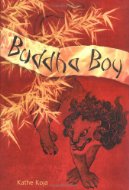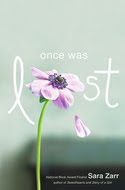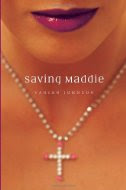[Book cover credit: librarything.com/work/10175762]
Awards:
Sydney Taylor Honor Book (2011)
William C. Morris YA Debut Finalist (2011)
Booktalk:
Gittel has always lived in the Chassidic community of Borough Park, and she knows that she is part of a holy community. She knows that unholiness, evil, hate and hurt come from the outside, from the goyim. Her best friend Devory knows that's not always true.
Told in alternating viewpoints, Gittel at age 9 and Gittel as a newlywed, Hush looks at how a small community deals with abuse at the hands of their own, or more importantly, how they fail to deal with it.
Review:
Hush was a hard book to read. It was painful and sad and unbelievable, but it was never hopeless, even when Devory and Gittel were. And it was compelling. I always skip to the end of books to read the "About the Author" section, so I knew from the get-go that Chayil (a pseudonym) is really a grown-up Gittel. I needed to know how she went from a childhood that taught her never to say anything that could shame another member of her community to the point of being able to write about the abuse she witnessed as a child in such a public way.
I don't know how much of a spoiler this can be since it's in the description and in probably every synopsis of the plot, but read on with caution.
Devory's brother rapes her with Gittel feigning sleep in the next bed. Because we, as adults, know what is happening, it's a horrible scene to read. But Gittel has no idea what is going on, coloring the scene with confusion and fear. She knows that Devory's brother is hurting her. It's what happens afterward that is really horrific: Devory's parents tell the girls that they must be wrong; nothing like that could have possibly actually happened. They send Gittel home and leave Devory with her brother.
OF COURSE, while I was reading I was outraged, but I must have braced myself for it too much. I was so prepared for the sexual abuse that I somehow didn't let the real horror of the situation sink in. It wasn't until I went back through the book after reading that it really hit me. I was sitting in Borders checking quotes in my ARC against the published copy. Maybe it was seeing those quotes that I had marked out of the context of the story, but I sat in Borders angry and almost crying. Every single adult in Gittel and Devory's lives covers up the situation so that no one else, including the authorities, can know for certain what happened. They keep this up long after Devory, at the age of nine, hangs herself in her best friend's bathroom.*
Here is one of the quotes I was checking:
I am so sorry, Devory. I am apologizing for all of them, for those who should have know but didn't, for those who knew but ignored, and for those who put their reputations above their children's lives. ... You didn't have to die. But for our ignorance, for our deliberate blindness, for our unforgivable stupidity, you did. I hope this letter will stop others from sharing your fate.So, yes, this is a hard and painful book to read, but it is also important. And though it has won a couple youth honor nods (and is clearly a YA book), it needs to be read by adults. As Liz B. points out**, this is not a condemnation of the community that Chayil is writing about. Denial is not exclusive to this group, and it is the adults' denial that is the real problem.
p.335
Book source: ARC provided by the publisher
*This is the difference between Hush and a book like Hope in Patience. In the latter, Ashley's mom doesn't believe her about the abuse, which allows it to continue, but after the fact, Ashley's dad and step-mom believe and are supportive of her, which allows her to heal and move on. Devory has no one to turn to but Gittel, who has less understanding of and control over the situation than Devory herself. Even the adults that believe Devory and Gittel do nothing to help. Gittel's father (my favorite adult in the book) doesn't find out about the abuse until it is too late to save Devory, but he eventually comes around and helps Gittel to grieve and go public with what she saw.
**Her review is so much less emotional than mine, so I highly suggest that you check it out. She also has links to a few other reviews and an author interview.
Links to Amazon.com may be affiliate links for the Amazon Associates program. If you buy something through this link, I may receive a referral fee.





